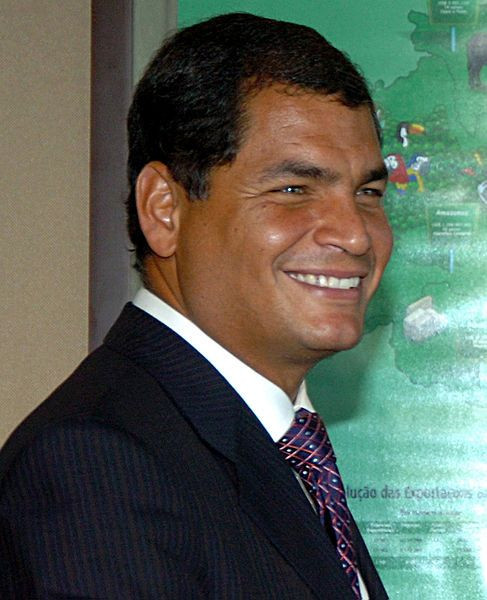
A day after Rafael Correa, the president of Ecuador, told CNN En Español that Venezuelan opposition leader Henrique Capriles was a "coup leader", Capriles responded sharply in a Twitter post directed to Correa, telling him to "stay out of the internal affairs of our Venezuela".
Capriles, who according to the Venezuelan national electoral council lost the elections by less than 2 percent of the vote, says an audit of votes currently being carried out is "a joke" and demands that full elections be held again. His team says it has proof of over 320,000 election day irregularities and says the legitimacy of the elections cannot be proved unless the voter registration books are checked against the actual votes. Correa, who was a close ally of late Venezuelan president Hugo Chávez, calls Capriles' demands "absurd" and points to the modernity of Venezuela's electoral system.
During an interview with Ana Pastor, a journalist for CNN En Español, the president of Ecuador was asked if he thought Capriles was a "coup leader".
"Of course," Correa responded. "The whole of the Venezuelan right."
Europa Press writes that Correa has, in the past, argued that Capriles supported the 2002 coup that briefly deposed Chávez before power was restored to him. In the interview, Correa went on to say that Latin American countries "have always faced destabilizing measures", pointing to coup attempts in 2002 against Chávez, in 2008 against Evo Morales in Bolivia, in 2009 against Manuel Zelaya in Honduras, in 2011 against Correa's own government, and in 2012 against Fernando Lugo in Paraguay. "Five coup d'états against five progressive governments...do you think that's a coincidence?" he said.
Correa's administration calls itself a socialist one and the president has tightened ties to other leftist South American governments since he entered office. Yet his government's policies have often diverged from those of his leftist allies. Earlier this month, after being re-elected on promises to further "radicalize", he sent legislation to the Ecuadorian Congress which would integrate the country's two securities exchanges and require them to convert into for-profit entities, according to Bloomberg News. The bill would allow financial firms to set up investment banks and mutual funds and make it easier for medium-sized and small companies to raise financing on exchanges. In a letter to Congressional President Fernando Cordero, Correa wrote that the exchange market was "a very important segment of the economy of a nation" and said it "could be an ideal mechanism to democratize companies' property".
© 2025 Latin Times. All rights reserved. Do not reproduce without permission.




